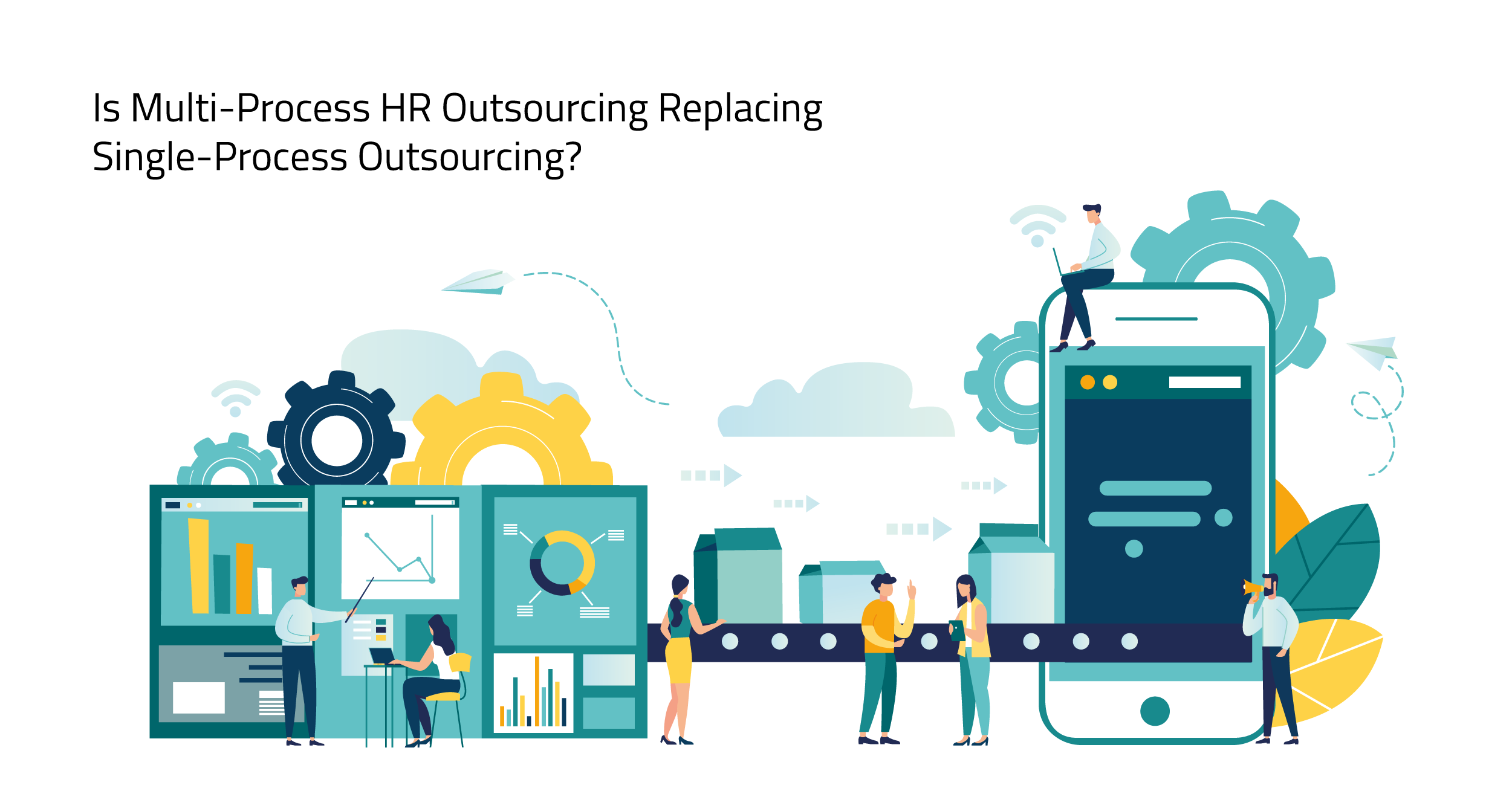
Is Multi-Process HR Outsourcing Replacing Single-Process Outsourcing?
Since the time of the dotcom boom to the present day, the idea of optimal human resource outsourcing has gone back and forth — innovating, adapting, and streamlining to fit the needs of the industry. HR providers have gone from providing single, specialized services like recruitment process or payroll services, to providing a suite of integrated functions under one roof.
According to Mark Stelzner, Founder and Managing Principal of San Francisco-based HR consultants Inflexion Advisors, after the dotcom bubble burst in 2000, organizations began to outsource their HR functions to external providers. They hoped to benefit from increased efficiency of standardized practices. Yet, this approach failed because large companies demanded customization to stay ahead of the curve. This led to output delays and higher costs, forcing providers to streamline, and compete via single-process contracts.
Over time, as HR providers improved their systems and scaled up to effectively improve engagement, labor arbitrage and technological advancements helped bring down costs and improve efficiency, making multi-process HR outsourcing (MPHRO) a more popular choice. In recent times, software as a service (SaaS) has transformed HR, allowing vendors to save time when they take on large clients, and provide tailored services. Cloud technology, analytics, and automation have paved the way for next generation.
A Closer Look
The global MPHRO market will grow 6-8 percent annually, exceeding the US$5 billion mark by 2020, according to Everest Group. Yet, single-process HR outsourcing (SHRO) hasn’t been completely blown out of the water.
Single function outsourcing has various benefits like minimal variation in quality of service, quicker turnaround time, better supply chain optimization, and creating higher value on the whole. Recruitment process outsourcing, for instance, is prevalent among companies. Choosing to partner with a provider for RPO can have short-term and long-term benefits for a firm, like getting access to a larger talent pool, shorter time to hire, standardized processes across all departments and better compliance.
But SHRO can also be more expensive and it can be complicated to keep track of multiple vendors who service diverse HR requirements for a company, leading to a quality mismatch across departments and ultimately dissatisfied employees.
HR has gone from being a tactical tool, to a strategic factor in business. The grave issues threatening HR today are talent scarcity, high cost of operations, and providing the best employee experiences that can diminish attrition.
MPHRO can address such concerns, leveraging technology in conjunction with new-age tools like social media networking to cut costs, improve efficiency and integrate a seamless employee experience. Enterprises want end-to-end transformation rather than focusing on isolated, transactional HR deals such as payroll processing and benefits administration. Given the competitive workforce dynamics today, companies are favouring MPHRO vendors who can provide one-stop solutions to their HR problems through innovation and execution fineness.
Opportunities
HR outsourcing is central to a company’s business model, be it via specialized services or packaged solutions. Hiring, assessing, and training of employees remain the top HR processes outsourced, according to India HR Study, 2015, as quoted in People Matters.
Traditionally, the retail and financial services sectors have opted for MPHRO, but recently, non-traditional adopters such as healthcare and retail have showed increased interest, according to Everest Group. Organizations need to draft an HR outsourcing plan depending on their core principles and cultural needs, and identify integrated platform providers that can provide solutions to all HR challenges.


